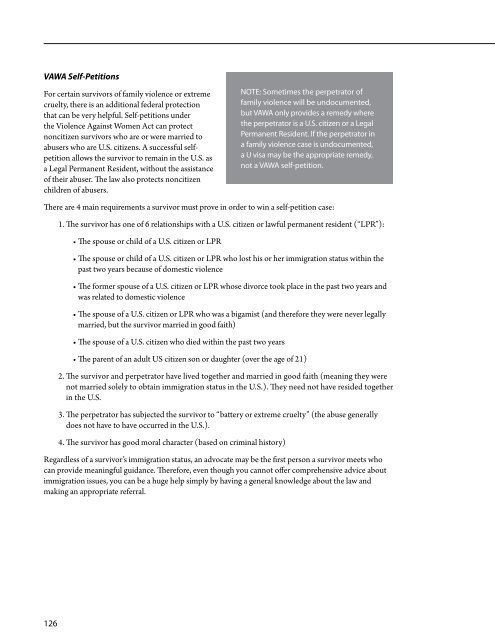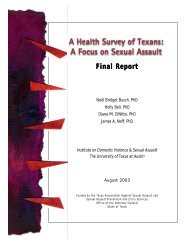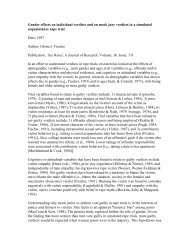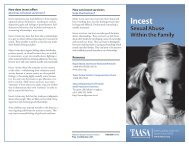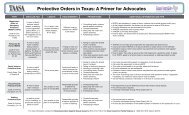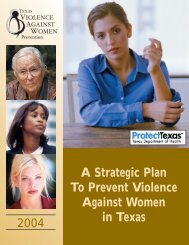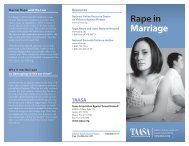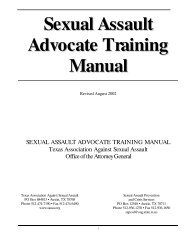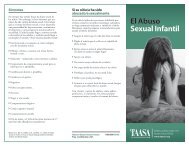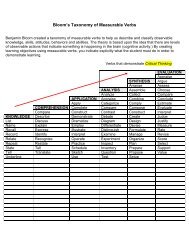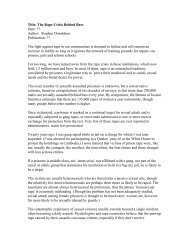Sexual aSSault LEGAL ADVOCACY MANUAL - Texas Association ...
Sexual aSSault LEGAL ADVOCACY MANUAL - Texas Association ...
Sexual aSSault LEGAL ADVOCACY MANUAL - Texas Association ...
Create successful ePaper yourself
Turn your PDF publications into a flip-book with our unique Google optimized e-Paper software.
VAWA Self-Petitions<br />
For certain survivors of family violence or extreme<br />
cruelty, there is an additional federal protection<br />
that can be very helpful. Self-petitions under<br />
the Violence Against Women Act can protect<br />
noncitizen survivors who are or were married to<br />
abusers who are U.S. citizens. A successful selfpetition<br />
allows the survivor to remain in the U.S. as<br />
a Legal Permanent Resident, without the assistance<br />
of their abuser. The law also protects noncitizen<br />
children of abusers.<br />
NOTE: Sometimes the perpetrator of<br />
family violence will be undocumented,<br />
but VAWA only provides a remedy where<br />
the perpetrator is a U.S. citizen or a Legal<br />
Permanent Resident. If the perpetrator in<br />
a family violence case is undocumented,<br />
a U visa may be the appropriate remedy,<br />
not a VAWA self-petition.<br />
There are 4 main requirements a survivor must prove in order to win a self-petition case:<br />
1. The survivor has one of 6 relationships with a U.S. citizen or lawful permanent resident (“LPR”):<br />
• The spouse or child of a U.S. citizen or LPR<br />
• The spouse or child of a U.S. citizen or LPR who lost his or her immigration status within the<br />
past two years because of domestic violence<br />
• The former spouse of a U.S. citizen or LPR whose divorce took place in the past two years and<br />
was related to domestic violence<br />
• The spouse of a U.S. citizen or LPR who was a bigamist (and therefore they were never legally<br />
married, but the survivor married in good faith)<br />
• The spouse of a U.S. citizen who died within the past two years<br />
• The parent of an adult US citizen son or daughter (over the age of 21)<br />
2. The survivor and perpetrator have lived together and married in good faith (meaning they were<br />
not married solely to obtain immigration status in the U.S.). They need not have resided together<br />
in the U.S.<br />
3. The perpetrator has subjected the survivor to “battery or extreme cruelty” (the abuse generally<br />
does not have to have occurred in the U.S.).<br />
4. The survivor has good moral character (based on criminal history)<br />
Regardless of a survivor’s immigration status, an advocate may be the first person a survivor meets who<br />
can provide meaningful guidance. Therefore, even though you cannot offer comprehensive advice about<br />
immigration issues, you can be a huge help simply by having a general knowledge about the law and<br />
making an appropriate referral.<br />
126


